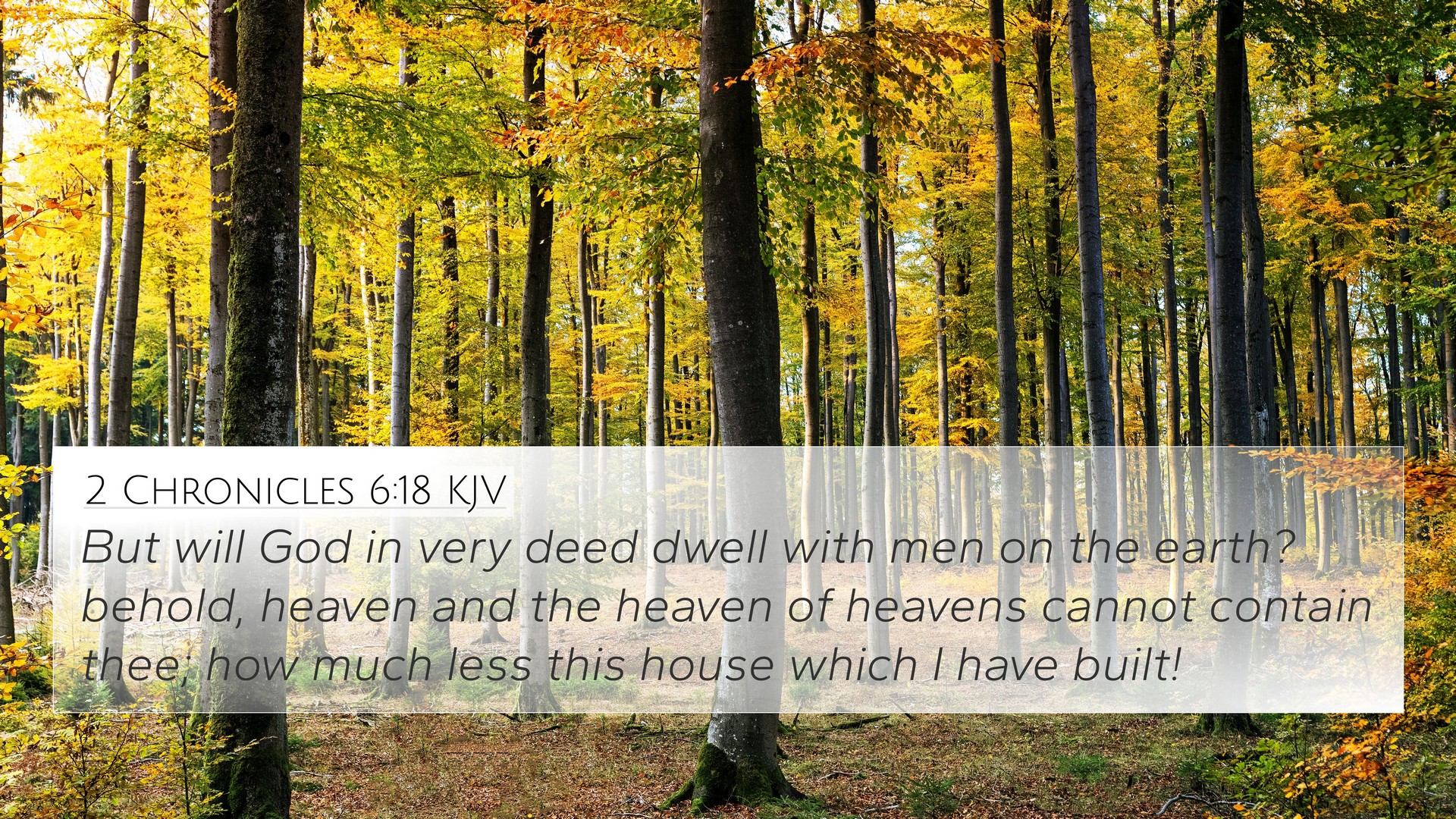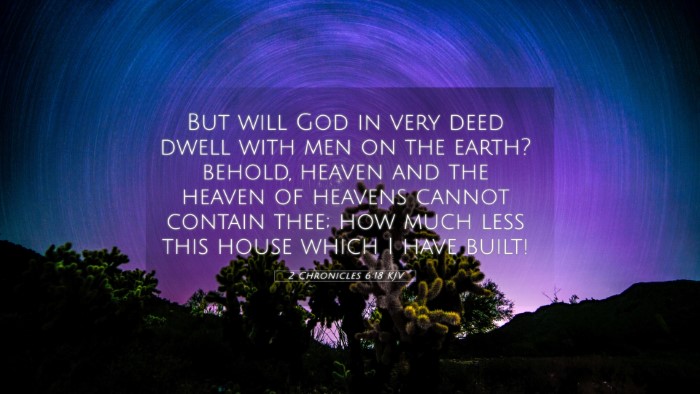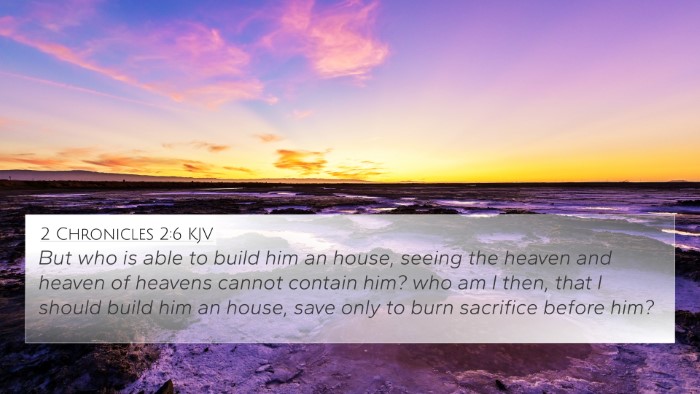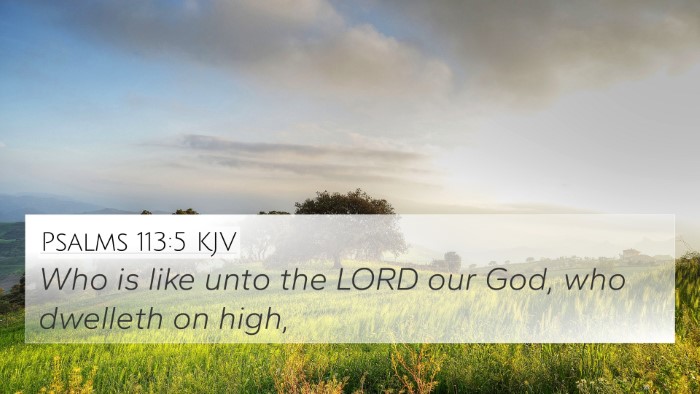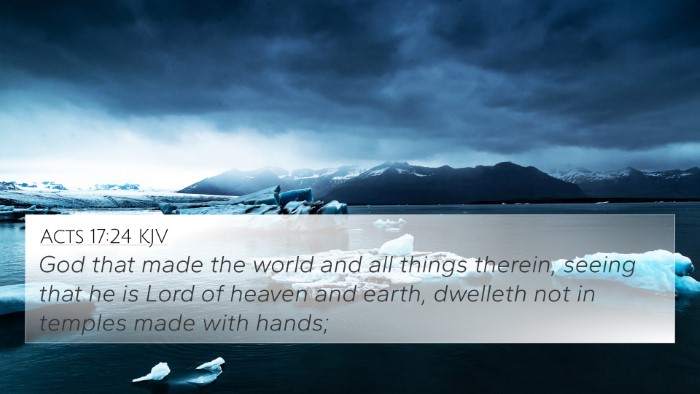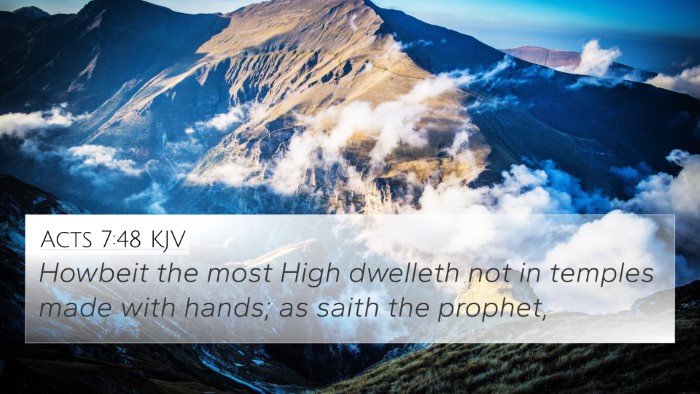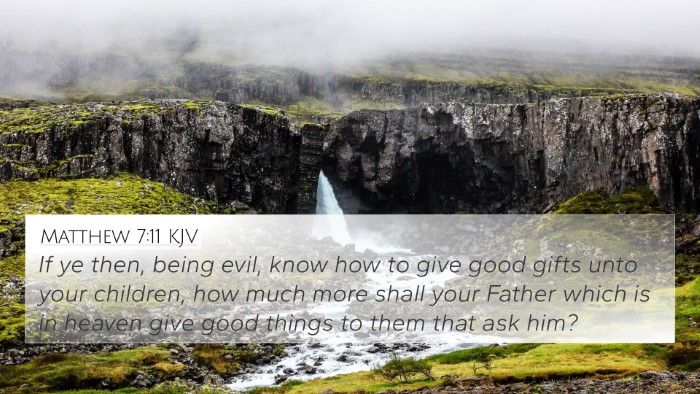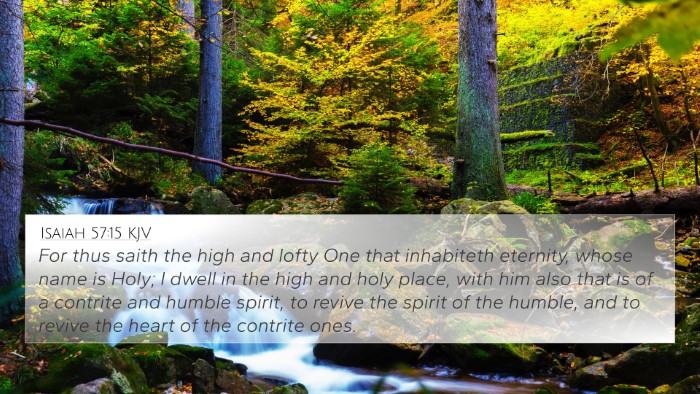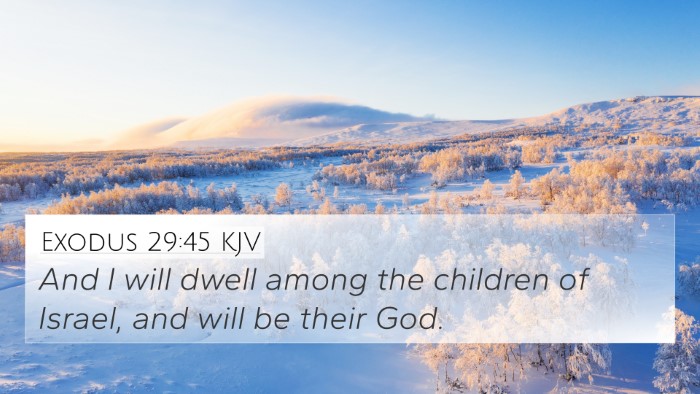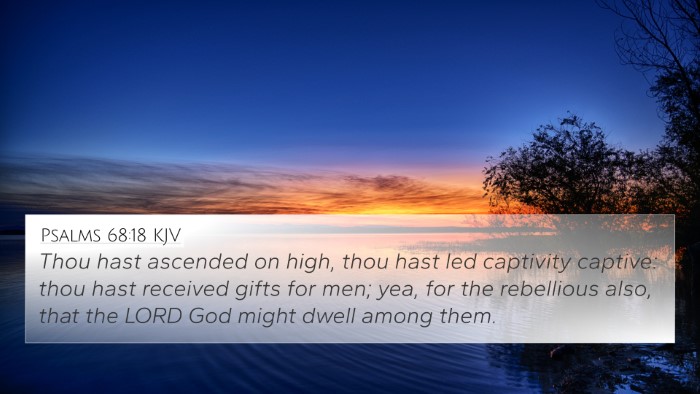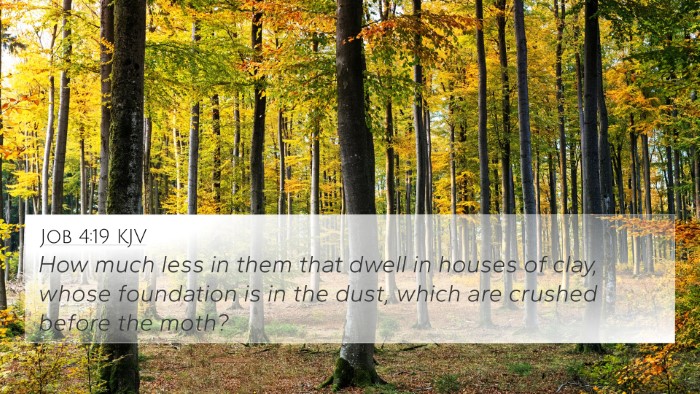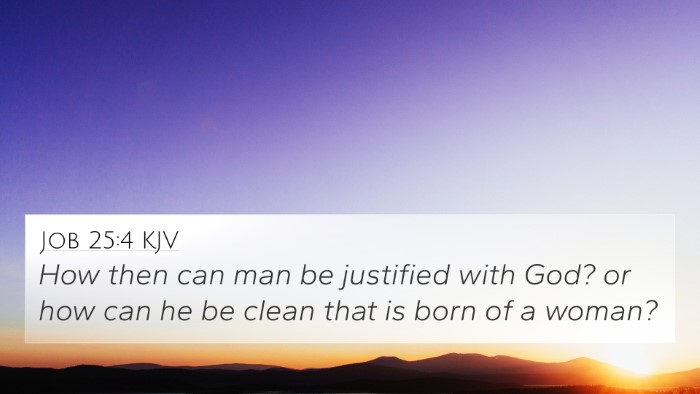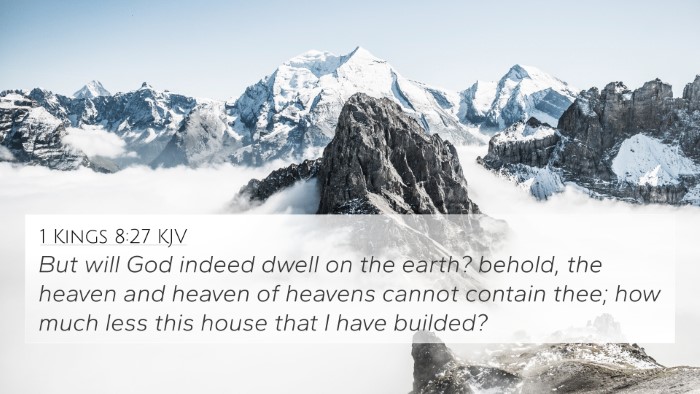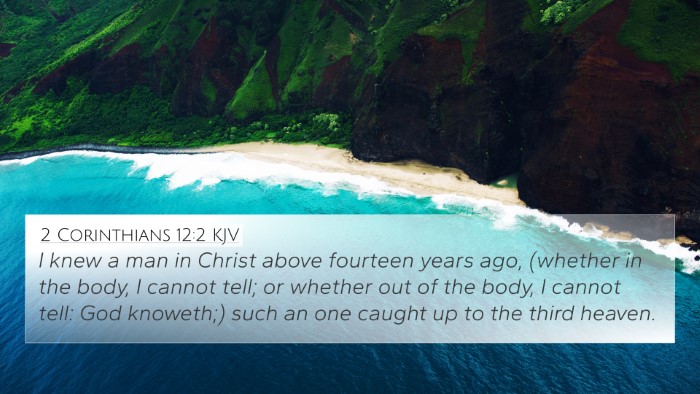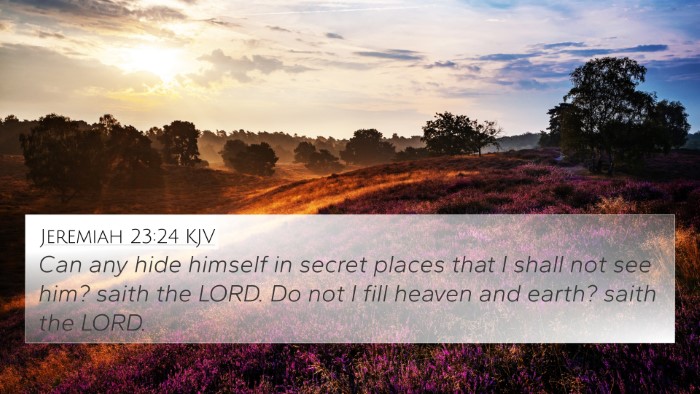Verse Analysis of 2 Chronicles 6:18
Verse Reference: 2 Chronicles 6:18
Text: "But will God in very deed dwell with men on the earth? behold, heaven and the heaven of heavens cannot contain thee; how much less this house which I have built!"
Meaning and Interpretation
This verse, spoken by King Solomon during the dedication of the temple, raises profound theological implications about God's presence and the limitations of physical structures in housing the divine. Solomon acknowledges the greatness of God and the inadequacy of human attempts to contain Him within any earthly dwelling.
Theological Insights
- Divine Omnipresence: Solomon reflects on God's omnipresence, recognizing that even the vast expanse of heaven cannot fully encompass God. Public domain commentaries highlight that this assertion emphasizes God's transcendence beyond our physical universe.
- The Limitations of Temple Worship: The commentary by Adam Clarke emphasizes that while the temple is a sacred place, it cannot confine God's glory. It serves as a meeting point where believers can approach God, yet God's essence far exceeds the confines of any building.
- The Nature of God's Dwelling: Matthew Henry comments on God's willingness to manifest His presence among His people, suggesting that the temple symbolizes God's covenant relationship with Israel. It acts as a testament to God's commitment to dwell among His people despite His immensity.
Comparative Analysis with Other Scriptures
There are several Bible verse cross-references that enrich our understanding of this passage:
- 1 Kings 8:27: This verse reiterates Solomon’s acknowledgment of God’s greatness and the inadequacy of the temple.
- Psalms 139:7-10: David meditates on God’s omnipresence, affirming that there is nowhere one can flee from God’s presence.
- Acts 7:48-50: Stephen echoes the sentiment that "the Most High does not dwell in temples made with hands," reinforcing Solomon's original thought.
- Isaiah 66:1-2: Isaiah points out that heaven is God’s throne and Earth His footstool, emphasizing the vastness of His being.
- John 4:21-24: Jesus teaches that true worship transcends location, indicating that God seeks worshippers who worship in spirit and truth.
- Hebrews 9:24: This verse mentions that Christ entered the heavenly places rather than a man-made sanctuary, linking the heavenly with earthly worship.
- Revelation 21:3: The promise of God's dwelling with humanity in the New Jerusalem reiterates the fulfillment of God’s desire to be with His people.
Connecting Themes in the Bible
This verse invites exploration of the thematic Bible verse connections regarding God’s presence among humanity:
- Covenant Relationship: Throughout the Old Testament, God establishes covenants with His people, hinting at His desire to be with them.
- Worship and Reverence: The emphasis on the temple reflects the need for a sacred space, aligning with God's call for reverent worship.
- The Promise of Indwelling: In the New Testament, believers are assured of the Holy Spirit’s indwelling, fulfilling the promise of God dwelling in His people.
Conclusion
2 Chronicles 6:18 serves as a significant reminder of God's majestic and transcendent nature while also affirming His desire to dwell among His creation. For anyone conducting a cross-reference Bible study, this verse offers a rich foundation for understanding how God interacts with humanity across both the Old and New Testaments.
Tools for Further Study
To delve deeper into cross-references and thematic connections within the Bible, consider utilizing the following:
- Bible Concordance: A resource to find words and their occurrences throughout scripture.
- Bible Cross-reference Guide: A tool to help identify related verses across the text.
- Cross-reference Bible study methods: Techniques to systematically link verses for deeper understanding.
- Bible chain references: A method of linking verses that support or build upon one another.
